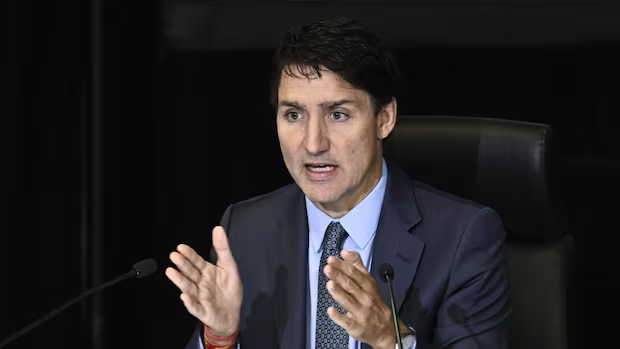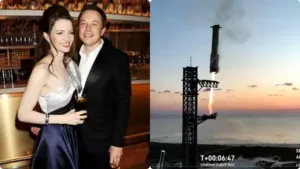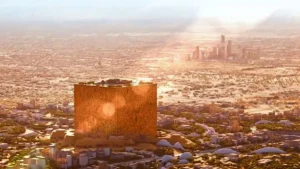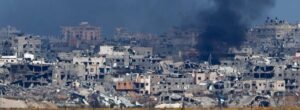
Canadian intelligence agencies have information that certain Conservative lawmakers are “engaged” or at risk from foreign intervention schemes, according to Prime Minister Justin Trudeau’s suggestion on Wednesday.
Trudeau attacked Conservative Leader Pierre Poilievre in startling evidence at the foreign interference commission on Wednesday morning for turning down top-secret briefings on a national security threat that he said had infiltrated his own party.
Trudeau informed the commission’s attorneys, “As prime minister, I am privy to all these details, so I have the names of several members of Parliament, former members, and/or candidates in the Conservative Party of Canada who are involved in, at high risk of, or for whom there is clear intelligence regarding foreign interference.”

Additionally, I have instructed CSIS and others to attempt to alert the leader of the Conservative Party so that he is prepared to make judgments that safeguard the party’s and its members’ integrity against attempts at foreign intervention.
“No one in his party, not even himself, and no one in a position of authority know the names of these people and can take the proper action because the Conservative Party leader chose not to receive those classified briefings,” Trudeau continued.
The fact that Poilievre has so far rejected the briefings from Canada’s national security services was deemed “bewildering” by Trudeau.
Although NDP Leader Jagmeet Singh and Green Party Leader Elizabeth May have received the material, Poilievre has claimed that accepting the top-secret briefings would bar him from questioning foreign meddling in the House of Commons.
Testimony on lawmakers’ “wittingly or unwittingly” involvement in foreign interference schemes has already been heard in Justice Marie-Josée Hogue’s investigation; this evidence is consistent with the conclusions of an all-party national security committee of lawmakers earlier this year.
However, neither Hogue’s investigation nor that committee have provided any clues as to the identities of those lawmakers. Han Dong, the now-independent Don Valley North MP who was elected as a Liberal, is the only active member of parliament mentioned in the testimony presented to the Hogue commission.
“It is so egregious to me that the Leader of the Official Opposition, who is undoubtedly working very hard to become prime minister, is choosing to play partisan games with foreign interference and accusations on foreign interference, but not taking it at all seriously as regards to his own responsibilities as party leader, or even to get top officials within his party briefed as they bring on candidates from across the country,” Trudeau said, sounding a little more partisan than I tried to be in this case.
A request for response on Wednesday was not immediately answered by the Conservative leader’s office.
An attorney for the party will be given the chance to
As the investigation completes the most recent stage of its work, Trudeau is testifying.
The commission of inquiry is examining how well institutions are able to identify and prevent hostile governments from interfering in Canadian affairs.
It has heard from cabinet ministers, members of expatriate communities, senior bureaucrats, and police and intelligence personnel over the past few weeks.
Trudeau rejoins the investigation after participating in its first phase in April, which examined claims of interference in the previous two federal elections.
Days after Canada asked six Indian ambassadors to leave the country, India immediately retaliated by expelling Canadian diplomats, which coincided with the prime minister’s most recent testimony.
Starting next week, the investigation will have five days of policy consultation sessions.


